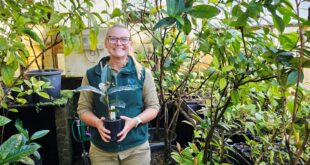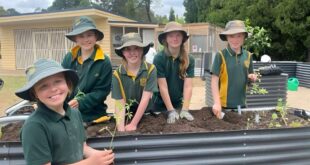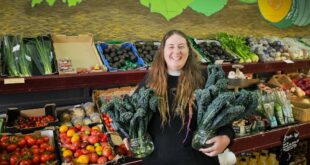
Practising social distancing before stricter rules came into place
It’s been just over three years since a group of locals, supported by The Big Fix, began work on a neglected piece of land generously made available to the community by Mountains Christian College. The dream was to create a small demonstration Farm for Blackheath village.

January 2017
Three years later the dream has become a reality. The Farm’s goal is to grow community first and foremost, then locally acclimatised seed, then food for its volunteers. Along the way the Farm has become a great social and teaching venue, holding weekly gatherings and a range of workshops and events including Permaculture, Composting, Water Management, Pest Management, How to Grow Funghi, Natural Fabric Dyeing, the Edible Garden Trail and Philosophy at the Farm! A highlight of the year has also been the Annual Garlic Sale.
Sadly, the Farm has had to temporarily close its gates to visitors as we all work together to stop the spread of COVID-19, but a small team of volunteers is still hard at work ensuring that we’re building a seed bank gathered from locally grown food.

Since this photo was taken we now only have two workers at a time at the Farm
While we can’t gather in groups we can continue to grow community by sharing online! In this blog we’ll give you updates of what we’re growing and harvesting at the Farm and what we’ve learnt over the last three years … including great recipes for local produce (read on for our purple rosti recipe).
Grow
We’ll also share what we’re growing in our own gardens and would love to hear what you’re doing too in the comments below. Let’s boost the amount of healthy locally grown food in the Blackheath district. If you’re new to gardening, a great site to learn about ‘what to grow when’ in our climate is Gardenate. Over the last fortnight we’ve planted garlic, and seed for broadbeans, peas and lettuce straight into the garden. At our home greenhouse we’ve sown seed in punnets for baby bok choy, purple sprouting broccoli, and broccoli romanesco. This week we’ll also be sowing seed for beetroot, onions, cabbages, kale, brussel sprouts, silverbeet, leeks, radishes and purple mustard.
Harvest
Currently we’ve picked the last of our massive crop of beans. This year we grew three climbing beans: Blue Lake, Purple King and Scarlet Runner Beans (Scarlets are perennial and are also known as the 7 year bean) and we’re now letting the last of the beans go to seed so that we can add them to our local seed bank and make them available later this year. Check out the size of some of our Scarlet Runner Beans now:
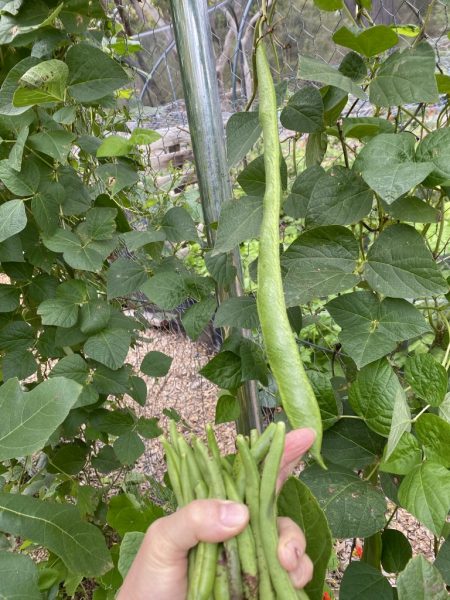
There are always handfuls of radishes and greens to be harvested, including kale, red elk mustard, rocket, chard and chives.
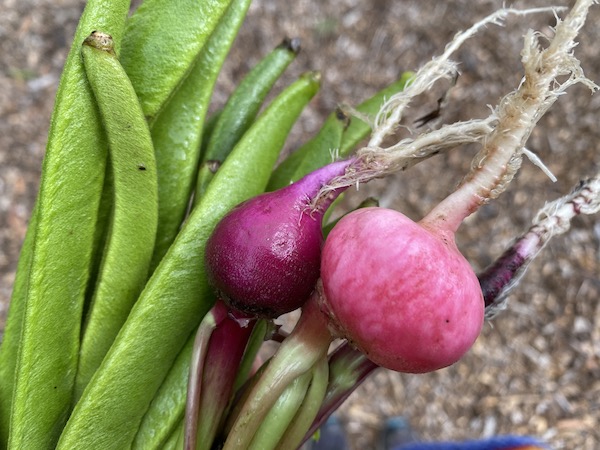
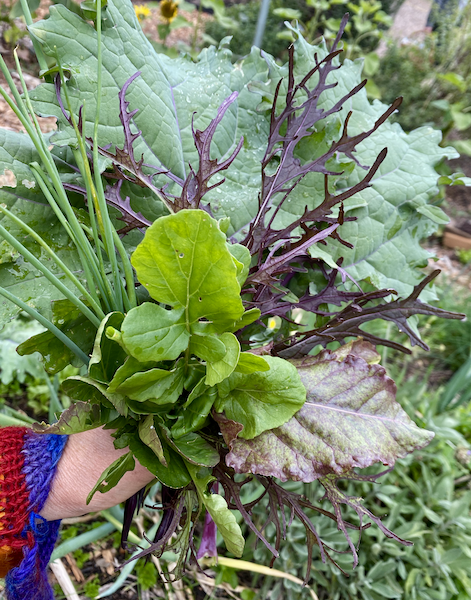
We’ve also begun harvesting our potatoes and we always keep aside the best for replanting next season. While we grow a variety of different potatoes our most prolific are our purple congos. Apparently they have two to three times the antioxidants of your more common potato, and are a low glycemic index (GI) food, making them better for diabetics in particular.
Cook
Because they’re rather floury purple congo potatoes make excellent purple gnocchi, but this year for the first time we used them to make purple rosti – what a hit, and what a quick and easy treat.
Purple Rosti Recipe
1. Clean then grate some potatoes coarsely. Only peel if the skin isn’t smooth (you don’t need to squeeze out any moisture).
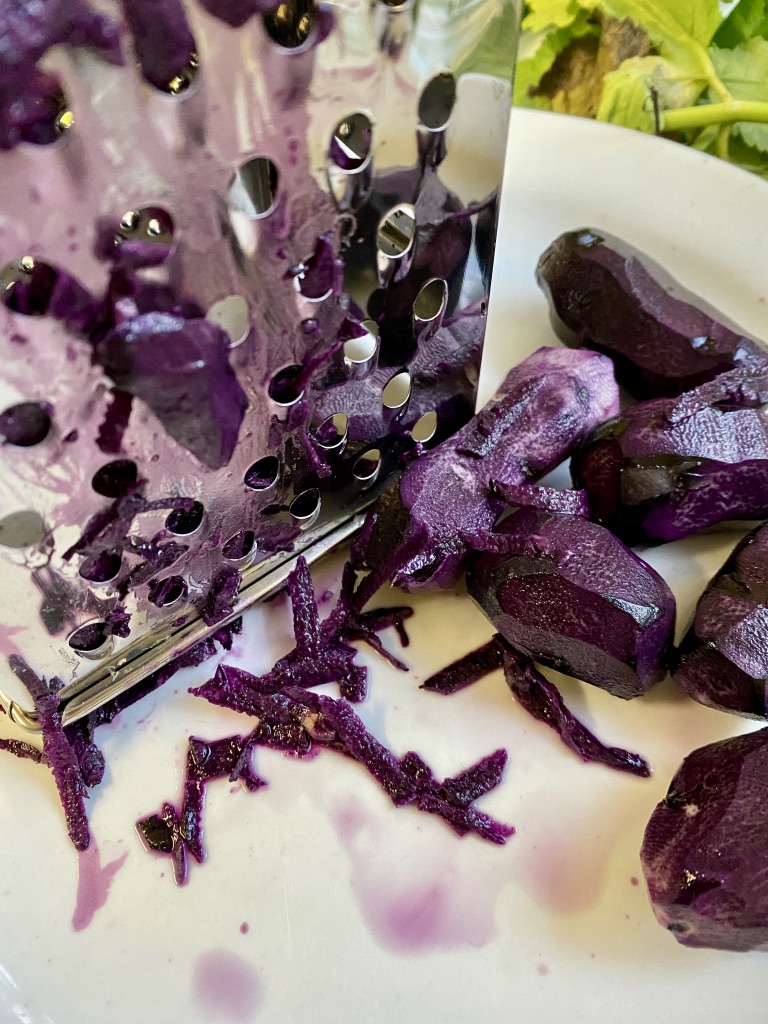
2. Heat a frying pan over low-medium heat and add a spoonful of butter, swirling to coat the whole pan. Scatter the grated potato lightly into the pan but don’t press it down. Sprinkle it with salt. Cook for about 12 minutes, until the bottom is crisp and browned, then use a spatula to gather the edges into a round “cake” and firmly press down the top.
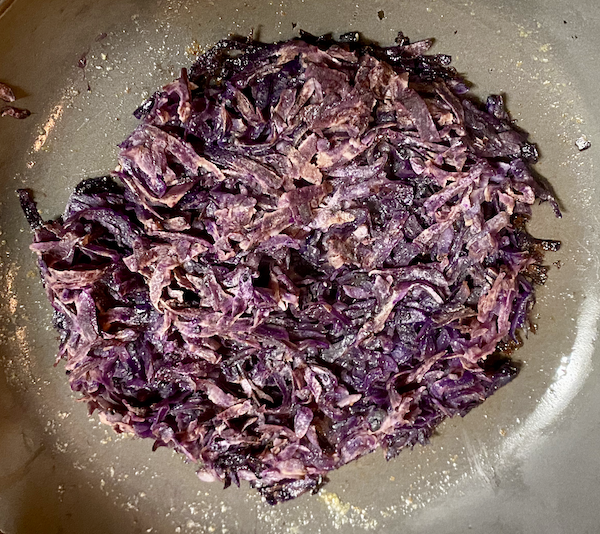
3. Turn the rosti out onto a large plate and return the pan to the heat. Add another spoonful of butter and slide the rosti back into the pan with the uncooked potato facing down, pushing it down again into a firm cake. Cook for a further 10 minutes until well-browned and cooked through. Turn the rosti out, season with a little more salt if desired, and serve.
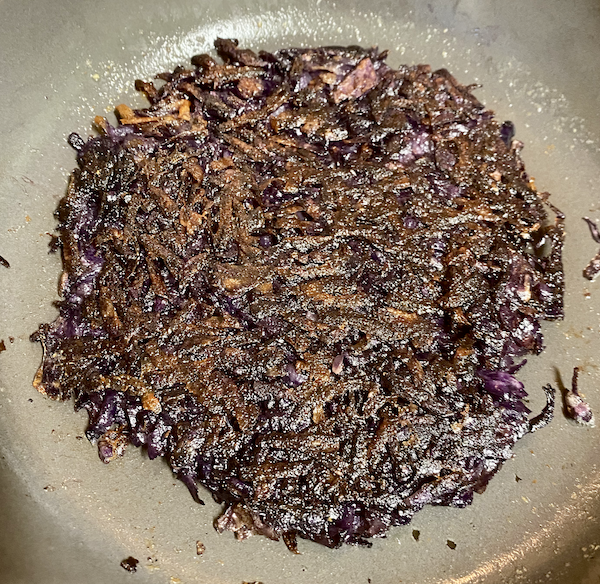
Eat as a snack or side dish!
